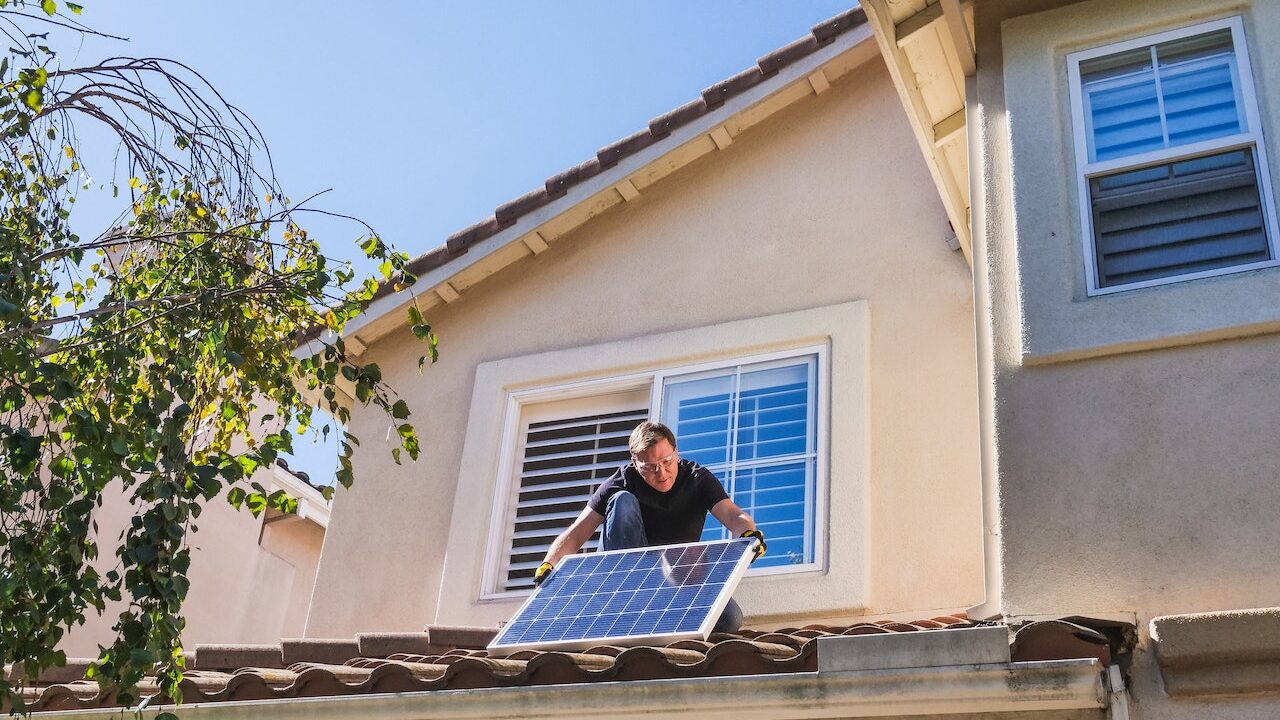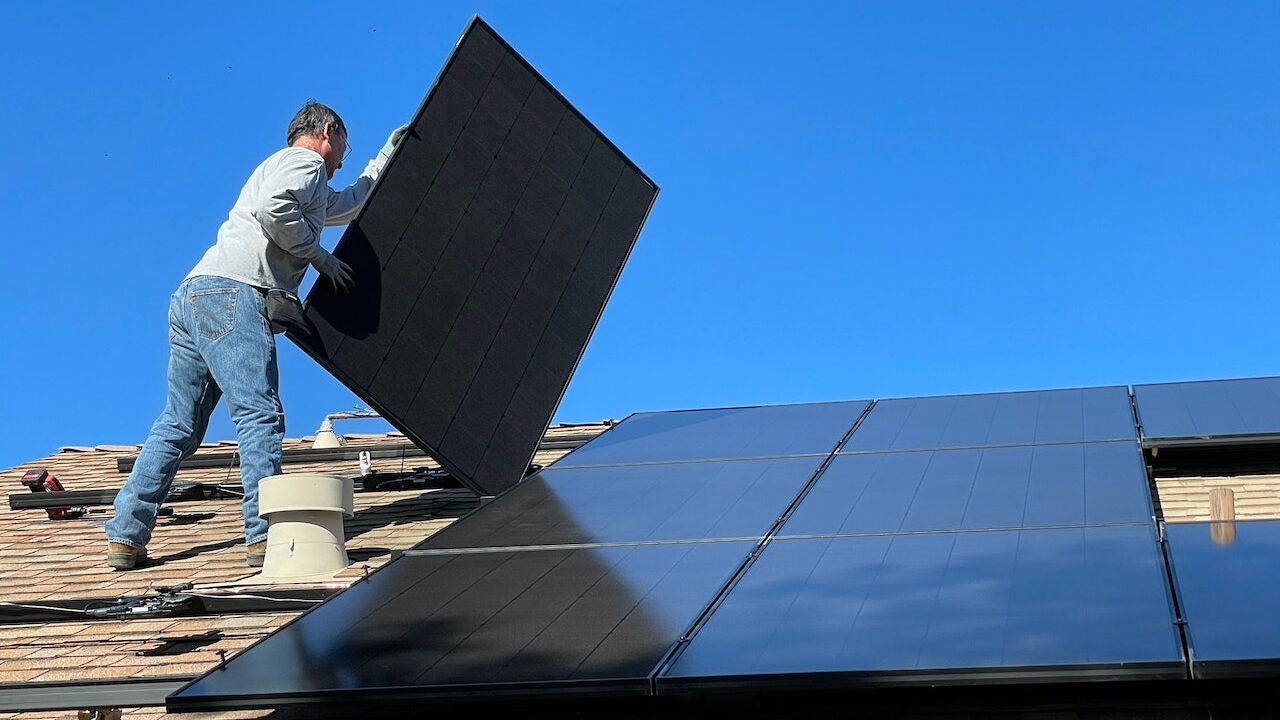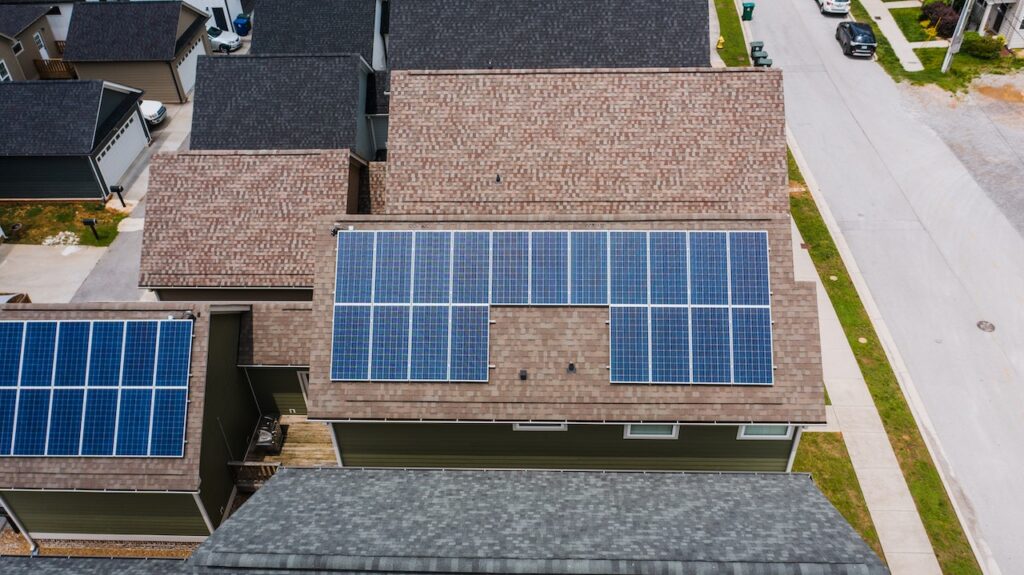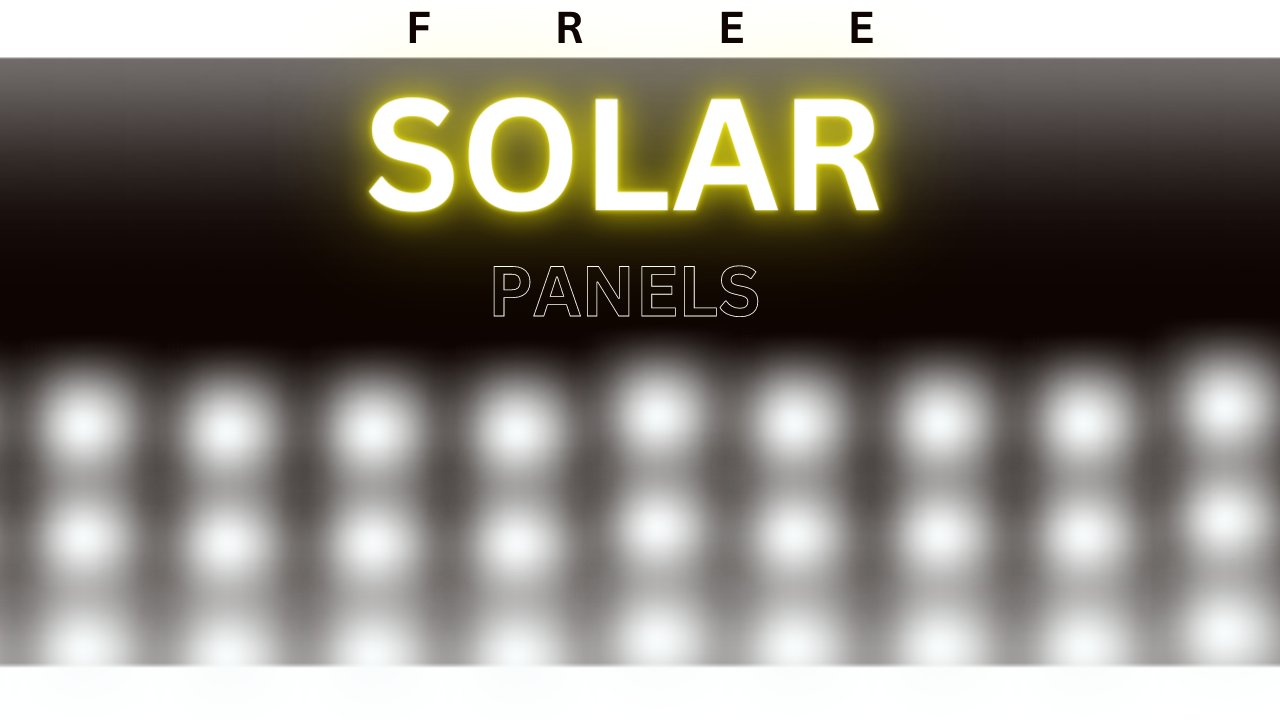Introduction
Welcome to the world of free solar panels, where homeowners are enticed by the promise of affordable, sustainable energy. Imagine being able to generate electricity on your own without having to pay anything up front. However, it’s important to examine the advantages, disadvantages, and difficulties related to free solar panels before jumping in headfirst with this alluring offer. We will set out on a journey to disclose the advantages, hidden costs, quality considerations, long-term obligations, and regulatory problems of free solar panels in this in-depth guide. By the end, you will be equipped with the knowledge to make informed decisions and harness the power of the sun without getting burned.
1: The Promise of Free Solar Panels

1.1: Understanding the Appeal: Exploring the Benefits of Renewable Energy
Free solar panels present an alluring option to use solar energy, which has gained tremendous traction in recent years. Homeowners can get a clean and sustainable source of electricity by installing solar panels. This section will explore the many advantages of renewable energy, such as less dependency on fossil fuels, decreased electricity costs, and a favorable effect on the environment. The benefits of solar energy over the long term will be emphasized, illuminating the allure of free solar panels.
1.2: Cost Savings and Financial Incentives: Debunking the Myth of “Free”
Although the word “free” could seem alluring, it’s important to dispel the illusion around free solar panels. We shall examine the financial ramifications of solar panel installations in this section. Homeowners should be mindful of potential hidden expenditures including maintenance, repairs, and system upgrades even though the upfront costs might be covered. We will also look into the numerous financial incentives and government initiatives that can minimize solar energy’s long-term cost savings while offsetting its early price.
1.3 Environmental Impact: Reducing Your Carbon Footprint with Solar Power
In order to lower carbon emissions and lessen the effects of climate change, solar energy is essential. Homeowners may actively support a better, greener world by choosing free solar power. This section will examine the beneficial effects of solar energy on the environment, emphasizing how solar panels may greatly lower carbon footprints and advance sustainability. The appeal of free solar panels will be increased from an ecological perspective by talking about how solar energy contributes to the fight against climate change.
1.4 Energy Independence: Empowering Homeowners with Self-Sufficient Energy Solutions
The ability for homes to achieve energy independence is one of the main benefits of solar panels. Homeowners can become self-sufficient and lessen their dependency on conventional energy sources by producing their own electricity. The idea of energy independence and the empowerment it gives homeowners will be covered in this section. Readers will comprehend how free solar panels might be a route to energy independence by highlighting the security and resilience offered by solar power.
2: Unraveling the Hidden Costs

2.1: Financing Models: Analyzing the Trade-Offs of “Free” Solar Panels
Free solar panel offers may appear alluring, but it’s important to look at the financing plans behind them. The many financing alternatives for solar panel installations, including solar leases, power purchase agreements (PPAs), and solar loans, will be covered in this section. Homeowners can choose wisely when it comes to their solar panel investments by being aware of the trade-offs and potential consequences of each model.
2.2: Maintenance and Upkeep: Assessing the True Cost of Ownership
Installing solar panels involves more than just the initial setup. Homeowners must consider the maintenance and upkeep requirements to ensure optimal system performance and longevity. This section will go through cleaning, monitoring, and potential repair costs as they relate to maintaining solar panels. Readers can assess the long-term financial effects of free solar panels by comprehending the genuine cost of ownership.
2.3: Performance Guarantees and Warranties: Ensuring Quality and Reliability
It’s critical to evaluate the performance guarantees and warranties offered by manufacturers and installers when thinking about free solar panels. The significance of comprehensive warranties that cover not just the panels but also the inverters and other system components will be covered in this section. Homeowners can make educated decisions and assure the long-term efficacy of their solar panel systems by highlighting the value of trustworthy warranties and performance guarantees.
2.4: Long-Term Commitments: Understanding the Fine Print and Contractual Obligations
Entering into long-term commitments and agreements with solar companies is frequently required when choosing free solar panels. It is essential for homeowners to fully comprehend the details and legal commitments involved with these arrangements. The potential difficulties and factors associated with long-term commitments, such as contract duration, termination provisions, system removal, and transferability, will be covered in this section. Homeowners may make educated judgements and steer clear of any unforeseen issues or shocks in the future by thoroughly comprehending the terms and conditions up front.
3: Quality Considerations and Performance Assessment

3.1: Evaluating Solar Panel Quality: Differentiating Between Manufacturers and Brands
Getting high-quality solar panels for free is essential. The significance of assessing solar panel quality and discriminating between manufacturers and brands will be covered in this section. To assist homeowners in making knowledgeable decisions and choosing panels that give the best performance and dependability, factors like efficiency, durability, and certifications will be covered. Readers can reduce the hazards connected with poor solar panel installations by being aware of the essential quality indicators.
3.2: Performance Metrics: Power Output, Efficiency, and Durability
Homeowners must be aware of the performance measures related to solar energy systems in order to evaluate the genuine worth of free solar panels. Important measures including power output, efficiency rankings, degradation rates, and temperature coefficients will be discussed in this section. Readers can more accurately assess the potential energy production and durability of their solar panel installations by being given insights into these performance parameters. Homeowners can make wise judgements if they understand the connection between these variables and system performance.
3.3: Longevity and Lifespan: Assessing the Durability of Free Solar Panel Systems
Homeowners should take the length and lifespan of the systems they select into consideration because solar panels are a long-term investment. The materials, manufacturing procedures, and environmental conditions that affect the durability and longevity of solar panels will be covered in this section. Homeowners can choose free solar panels that offer the finest compromise between immediate cost savings and long-term dependability by taking these factors into account. Emphasizing the value of robust and long-lasting systems will assist readers in making decisions that are consistent with their expectations and financial objectives.
3.4: The Importance of Professional Installation: Ensuring Optimal Performance
In order for solar panel systems to function and be as efficient as possible, proper installation is essential. The importance of expert installation and the potential problems connected to shoddy installations will be highlighted in this section. The subjects discussed will encompass picking trustworthy installers, comprehending installation best practices, and guaranteeing adherence to regional codes and laws. Homeowners may minimize potential performance concerns and maximize the advantages of their free solar panel installations by highlighting the need of professional installation.
4: Ownership and Regulatory Challenges

4.1: Property Resale and Transferability: Implications for Homeowners
Regarding free solar panels, home ownership and the resale value of properties are crucial factors. The effects of solar panel ownership on property resale will be discussed in this section, along with any potential advantages and difficulties. Agreement transferability, customer impressions, and financial ramifications will all be explored. Homeowners can decide whether to install free solar panels by being informed of the effects on property value and transferability.
4.2: System Upgrades and Expansions: Flexibility and Limitations
Homeowners may think about system additions or upgrades in the future as their energy needs change. In particular, system scalability and compatibility with extra energy storage or electric vehicle charging capabilities will be covered, along with the flexibility and limitations of free solar panel systems. Homeowners can prepare for future energy needs and make decisions that are in line with their long-term objectives by being aware of the potential restrictions and opportunities for system improvements and expansions.
4.3: Insurance and Liability: Addressing Concerns with Free Solar Panels
Free solar panel installations must take responsibility and insurance factors into account. The precise insurance and liability issues that homeowners should consider when choosing free solar panels are covered in this section. Homeowners insurance coverage, possible effects on premiums, and the significance of comprehensive liability coverage are among the subjects that will be explored. Additionally, it will go over the solar installers’ or providers’ responsibilities for providing adequate insurance coverage and taking care of any potential liabilities or damages that may result from the setup or use of the solar panel system. Homeowners can safeguard themselves and their investments in free solar panels by being aware of and responding to these worries.
4.4: Navigating Regulatory Compliance: Permits, Inspections, and Interconnection Agreements
Solar panel systems must adhere to a number of regulatory standards and compliance processes throughout installation and operation. This part will go over the permits, inspections, and interconnection arrangements that homeowners that choose free solar panels must deal with. Understanding local building codes, utility hookup procedures, and adherence to state and federal requirements are just a few of the topics that will be covered. Homeowners can make sure that their free solar panel installations meet all the legal criteria by receiving assistance on regulatory compliance, which will guarantee the system’s functionality and safety.
5: Making Informed Decisions

5.1: Considering Alternative Financing Options: Solar Loans, Leasing, and Power Purchase Agreements
Free solar panels may seem appealing, but homeowners should also think about other types of financing. Various strategies, including solar loans, leasing arrangements, and power purchase agreements (PPAs), will be covered in this section. Homeowners can make decisions that are in line with their financial situation and long-term objectives by being aware of the advantages and disadvantages of different financing options. Homeowners will have more control over which method of financing is best for getting solar panels by investigating the flexibility, ownership, and financial ramifications of multiple financing choices.
5.2: Government Incentives and Tax Credits: Maximizing Financial Benefits
Homeowners should look into any government incentives and tax credits to further increase the financial benefits of installing solar panels. An overview of federal, state, and municipal initiatives that offer financial incentives for solar panel installations will be given in this section. Homeowners can maximize their financial advantages and reduce the upfront expenses of purchasing solar panels by being aware of various financial incentives, such as investment tax credits, grants, and rebates. Homeowners will be assisted in making educated decisions that are in line with their financial concerns by emphasizing the potential savings and financial advantages.
5.3: Seeking Professional Advice: Consulting Solar Experts and Installers
Free solar panel decisions need to be guided by professionals. This section will emphasize how crucial it is to consult solar installers and specialists at every stage of the decision-making process. Homeowners can learn a lot about system design, financing alternatives, quality issues, and regulatory compliance by working with experts with solar industry experience. By seeking professional guidance, homeowners may be sure that they have access to correct information and can make decisions that are in line with their particular needs and objectives.
5.4: Weighing the Pros and Cons: A Decision-Making Framework
Homeowners will be given a decision-making framework in this last segment that encourages them to thoroughly consider the benefits and drawbacks of getting free solar panels. The main ideas covered in this blog post are summarized so that readers can assess the advantages, drawbacks, and other factors of getting free solar panels. Homeowners will be encouraged by the decision-making framework to evaluate their energy requirements, financial capacity, long-term objectives, and the precise terms and conditions of free solar panel offers. Homeowners may assure a good and successful solar panel installation experience by taking all of these considerations into account.
Conclusion
Even though getting free solar panels might appear enticing at first, it’s crucial to approach this opportunity carefully and comprehend all of the difficulties involved. The advantages of renewable energy have been discussed in this blog post, along with the myth of “free” solar panels and the concerns and difficulties involved in their installation.
We have talked about the unintentional expenses of finance, upkeep, and long-term obligations. In order to achieve the best outcomes, we have also emphasized the significance of assessing panel quality, performance indicators, and expert installation. We also talked about insurance coverage, regulatory compliance, and ownership difficulties.
Homeowners should carefully analyse the pros and downsides within a thorough decision-making framework, research other financing possibilities, investigate incentives and tax credits, and seek professional guidance in order to make well-informed decisions.
Homeowners can make decisions that are in line with their energy demands, financial capacity, and long-term objectives by approaching the idea of free solar panels with awareness and understanding. This guarantees effective solar panel installations that are sustainable and advantageous to the environment as well as to their own energy independence.




